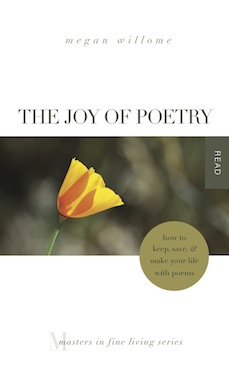At the end of the tour of the Holocaust Museum in Washington, D.C., I sat in a theater space watching interviews with Holocaust survivors. Each story mesmerized, but one in particular has stuck with me almost verbatim, in which two people describe liberation as they experienced it.
One interviewee offers the perspective of an American lieutenant who arrives at a camp; the other is that of a woman who had been imprisoned in the camp and brings the lieutenant into a factory where female prisoners lay on scant beds of straw, sick and skeletal, many with the look of death, barely moving.
The American recalls the scene:
The girl who was my guide made sort of a sweeping gesture over this scene of devastation and said the following words: ‘Noble be man, merciful and good.’ And I could hardly believe that she was able to summon a poem by the German poet Goethe, which was called, is called, ‘The Divine, ‘ at such a moment. And there was nothing she could have said that would have underscored the grim irony of the situation better than what she did.
I was struck by the poetry, and how he was struck by the poetry—and how in the midst of suffering, she had that line ready.
Poetry is often what we turn to when our own words would fall flat.
As Gerda and Kurt tell their story, we can see how they have benefited from telling their story, including the initial connection made through a line of poetry.
Noble be man,
Helpful and good!
For that alone
Sets hims apart
From every other creature
On earth.
—Johann Wolfgang von Goethe, Das Göttliche (The Divine)
Let the noble man
Be generous and good,
Tirelessly achieving
What is just and useful:
Let him be a model
For those beings whom he surmises.
—Goethe, Das Göttliche (The Divine)
One ought, every day at least, to hear a little song, read a good poem, see a fine picture, and, if it were possible, to speak a few reasonable words.
—Goethe, Bk. V, Ch. 1, Wilhelm Meister’s Lehrjahre (Apprenticeship)
The Healing Power of Art
At TEDMED, Melissa Walker presented the effects of combat on the psyche and how, through art therapy, she is working with servicemen dealing with PTSD. As an art therapist, she has to convince service members—big, tough military men and women who often refuse to talk about their trauma—to try art-making as a psycho-therapeutic intervention.
She has succeeded. “Vivid, symbolic artwork is being created by our service men and women, and every work of art tells a story.” Making the art, they can begin to leave behind the trauma. She reminds us that “the power to create is very closely linked to the power to destroy.”
Art—mask-making, in particular—frees afflicted men and women to express what haunts them, by “finding the resources within them they can call upon to heal themselves.”
Photo by Jimmy Brown, Creative Commons license via Flickr. Post by Ann Kroeker, podcaster, Tweetspeak editor, writing coach, and co-author of On Being a Writer: 12 Simple Habits for a Writing Life that Lasts.
_________________________
“Megan Willome’s The Joy of Poetry is not a long book, but it took me longer to read than I expected, because I kept stopping to savor poems and passages, to make note of books mentioned, and to compare Willome’s journey into poetry to my own. The book is many things. An unpretentious, funny, and poignant memoir. A defense of poetry, a response to literature that has touched her life, and a manual on how to write poetry. It’s also the story of a daughter who loses her mother to cancer. The author links these things into a narrative much like that of a novel. I loved this book. As soon as I finished, I began reading it again.”
—David Lee Garrison, author of Playing Bach in the D. C. Metro
- Life Notes: Tea is Necessary - February 3, 2017
- Interview with an English Teacher, Pt 2: The Heroic in Literature - January 27, 2017
- Interview with an English Teacher, Pt 1: Texts and Teaching - January 20, 2017


Laura Lynn Brown says
Kindness dignifies. Art humanizes and heals. Thank you, Ann. And to you, whoever scheduled this piece for this week.
Ann Kroeker says
Thank you for reading, watching, seeing.
Maureen says
An excellent choice of subject for today. Thank you, Ann.
I have read and continue to read a lot of Holocaust literature, including Gerda Klein’s ‘All But My Life’. In the memoirs especially, I am always struck by the remarkable resilience that comes through the writing, by the depth of hopefulness that overcomes the violence suffered, by the strength of the imagination to find expression.
Not so long ago I invited Fred Foote, whom I interviewed for TSP in 2015, to come and speak to my XYZ (‘Extra Years of Zest’) group about the important work he is doing with veterans of Iraq and Afghanistan. He read his own poetry that came out of his own service and gave a slideshow. For the men in the group it was an eye-opening presentation. In September Foote joined others in dedicating a healing space for veterans, The Green Road. He’s been a pioneer in holistic approaches for healing that include the arts.
Arts therapy has come beautifully into its own. What it shows us over and over is that our minds do heal through creative expression; it gives us reason to want to continue to go on. I wish it had been available to my brother who served in Vietnam and to my father, a veteran of WWII who served in the famous Merrill’s Marauders in China, Burma, and India.
Ann Kroeker says
You have had us thinking about this many times, Maureen. It’s so encouraging to see the power of Arts therapy. As you say, “it gives us reason to want to continue to go on.”
Laura Lynn Brown says
I’d like to hear more about your XYZ group.
Maureen says
The group is based in my little Episcopal parish. It’s for anyone, really, though mostly the members are retirees. We meet at noon on the first Thursday of every other month. A bit of socializing is followed by a pot-luck lunch (always great food) and then around 1 we have a speaker from the outside, such as Fred Foote, make his or her presentation. Sometimes our speakers are from our parish; for example, one of our members gave a great talk on her work as executive of the League of Women Voters. We’ve had presentations by government professionals, musicians, visual artists, etc. The group, which usually numbers 20-25, offers wonderful fellowship and introductions to persons we might not otherwise have an opportunity to know. It’s fun and informative.
P.S. At 64, I’m one of the youngest members. I love what “XYZ” stands for.
Matthew Kreider says
Yes.
Ann Kroeker says
Thank you for being here, Matthew.
lynn says
Artistic expression certainly has power to soothe the insanity in the world…thank you for sharing.
Ann Kroeker says
Soothe the insanity. Beautiful. I hope we might bring our own artistic expression and share that of others in the process.
Megan Willome says
In a holocaust, in war, in unfathomable situations, poetry and art are all that is left. That is why it heals. That is why the people who open themselves to it are strong beyond reason.
So glad to read this, today especially, Ann.
Ann Kroeker says
Well said. You know this so well, as we’ve learned through reading your journey in The Joy of Poetry.
Dolly Lee says
Thanks, Ann.
Ann Kroeker says
It was an honor to highlight the Kleins and let their story and the work of art therapy remind us how art can heal.
Dheepa Maturi says
Ann, thank you for your beautiful essay. I agree — in those circumstances, only poetry could capture the paradox of man’s devastating cruelty alongside his potential for goodness.
Ann Kroeker says
You said that so well.